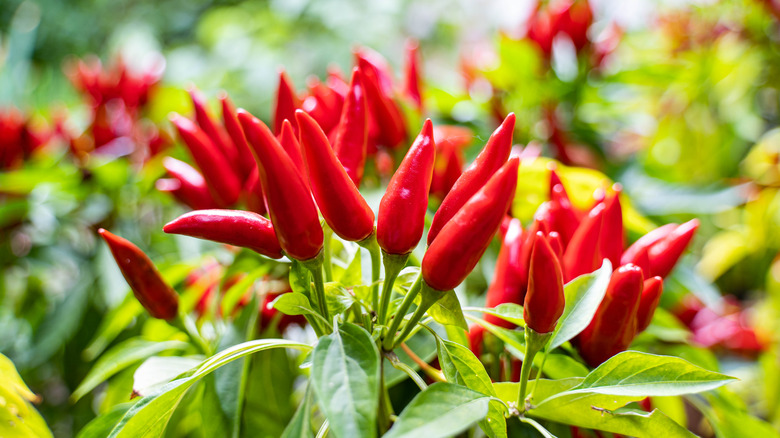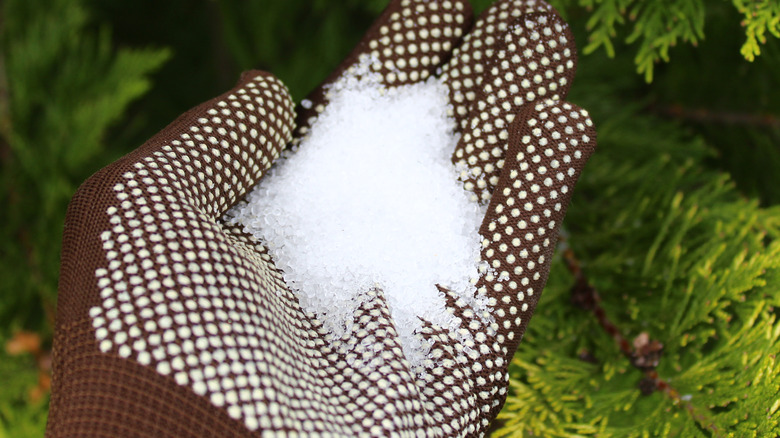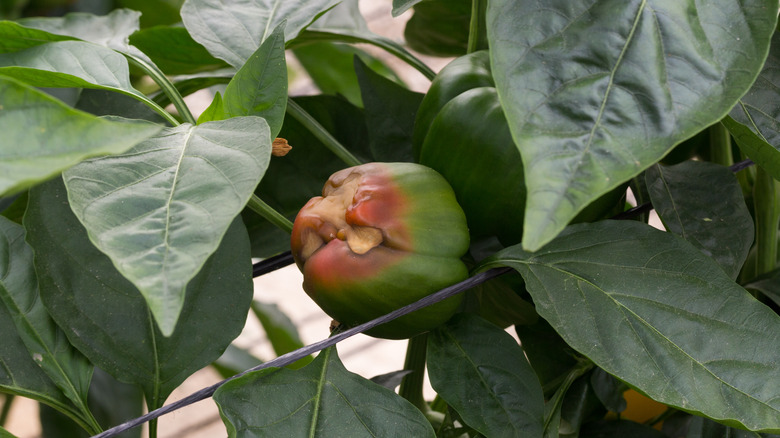Can Epsom Salt Really Help Pepper Plants Thrive?
When the reward involves delicious homegrown peppers (Capsicum annuum), it's only reasonable to want to give your plants the best care. From determining the best planting time to managing watering and fertilization requirements, there's plenty at stake. But with eco-sensitivity and sustainability becoming relevant, many home gardeners are eagerly deploying natural remedies like Epsom salts to improve their capsicum's health — an ill-advised move. Contrary to the popular anecdotal claims, the University of Minnesota says there's no scientific evidence backing the alleged gains in productivity, growth, and fruiting in peppers treated with Epsom salts.
The only exception to the Epsom salt rule is when the planting soil is deficient in magnesium — a rarity considering that most U.S. soils are rich in magnesium thanks to the natural topography. However, if your garden soil is very acidic (pH levels under 5.5, as is usually the case for light or sandy loam textures) or leeches often (due to rains or overirrigation), it might be magnesium-deficient. Seldom, magnesium may become bio-unavailable in clay soils if they've been used intensively. That's why it's crucial to get your soils tested before enriching them with Epsom salts.
Epsom salt is not a panacea
Like all plants, peppers show signs of interveinal chlorosis, a disorder where, barring the leaf's veins, the tissues turn yellow when the plants can't "access" magnesium. In the worst cases, it causes defoliation of mature leaves and reduced fruiting. So, as a preventative measure or early treatment, gardeners treat their garden's pepper plants to Epsom salt (MgSO4), thinking its 10% magnesium content will keep the peppers perky. Unfortunately, that's not how it works.
As mentioned, most soils aren't magnesium-deficient but can be out of balance. For instance, soils rich in potassium prevent pepper plants from absorbing magnesium due to cation competition. Thus, a dose of Epsom salt doesn't bear fruit since the soils don't lack magnesium — plants do. In such cases, adding nitrogen or reducing potassium is necessary, depending on what a soil test brings to light. But if the tests reveal poor magnesium levels, Epsom salts may "restore" pepper plants to their former glory without contributing anything extra for productivity gains. However, their utility will be limited in leached soils. The reason? Epsom salts are highly water-soluble, so the magnesium flows out of the soil, ultimately becoming a pollutant. This is why most pros advocate for dolomite limestone — it's affordable and has a similar concentration (8-10%). But if you can't risk raising the soil's alkalinity, opt for kieserite or biochar.
It can worsen problems
Another factor fueling the Epsom salt frenzy is its alleged ability to improve pepper plants' productivity — a claim traceable to an experiment conducted and published by Charlie Nardozzi, a horticulturist, on the National Gardening Association's website. In that experiment, six select home gardeners used Epsom salts on peppers and roses, with four reporting greater growth and bigger, juicier fruits on their pepper plants. However, he didn't elaborate on the influence of key factors like soil conditions, pH levels, or cultivars.
Instead, he proposed the use of Epsom salt as a foliar spray. Debbie Flower, a professor of horticulture, interjected on Fred Hoffman's radio show that when Epsom salt is diluted with water, its molecules can't pass through the plant's stoma, causing it to run down the foliage (causing leaf scald) and build up in the soil (as quoted in 2018's The Yolo Gardener). Interestingly, when Pennsylvania's Delaware Valley College researchers applied Epsom salts to pepper plants, they didn't find any measurably positive effects on yields. At most, the leaves appeared greener — a study Nardozzi quotes, too.
Dr. Linda Chalker-Scott goes a step ahead in her 2018 review on Epsom salts, where she quotes studies that found highly concentrated levels of Epsom salts caused salt injuries and boron and calcium (hello, rotting peppers!) deficiencies in plants. Additionally, studies found that magnesium salt unlocks the soil's aluminum while diminishing the strength of nitrogen-fixing microbes, damaging the vegetation.


